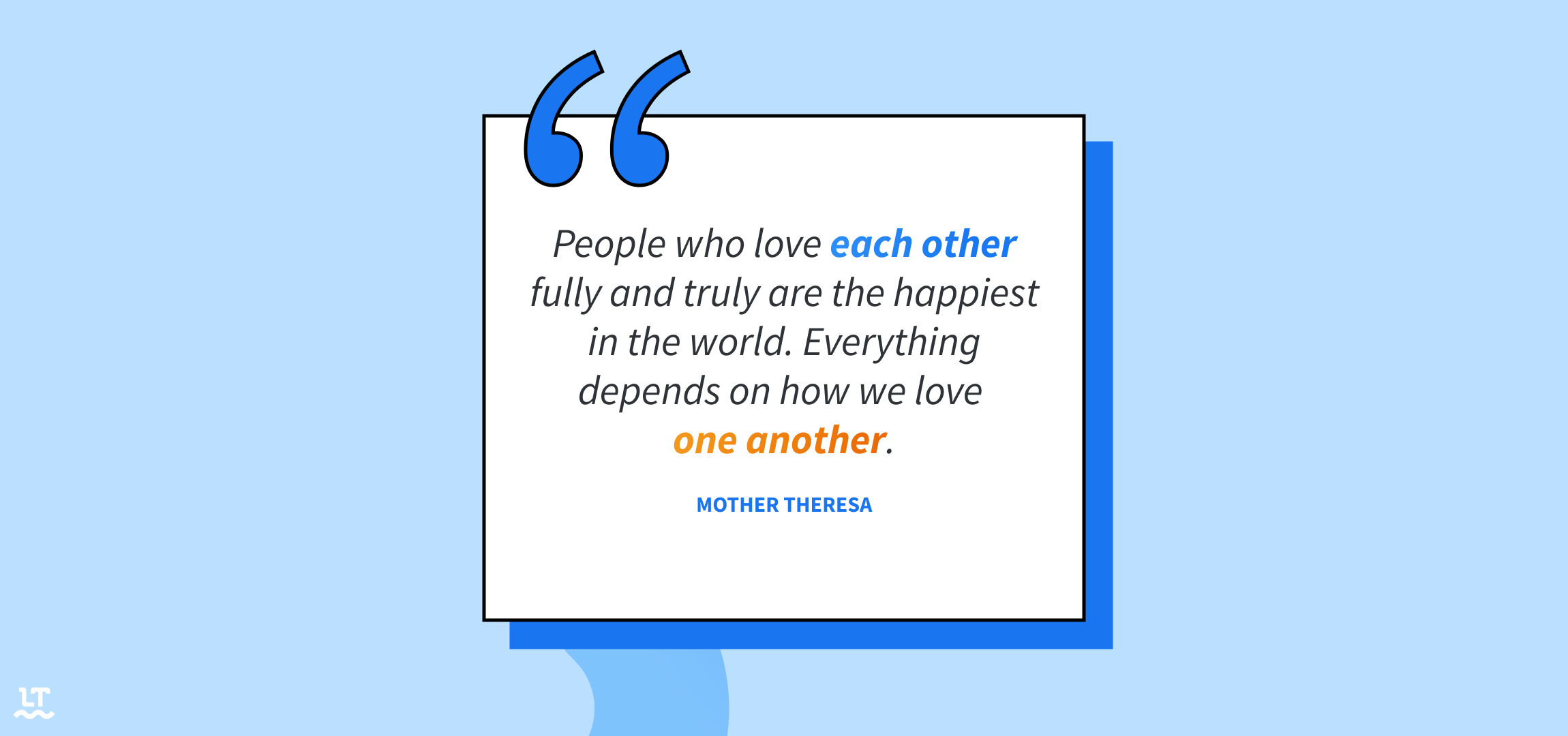In Each of Us There Is Another, But Aren’t We Just One People?
There was a time where each other and one another had different uses. Nowadays, it’s okay to use both words interchangeably, but each other suggests a degree of familiarity, whereas more generalized statements use one another. Each other occurs more frequently in fiction, TV shows, and spoken media; One another appears more in academic contexts, or newspapers.
Are “Each Other” and “One Another” Reflexive or Personal Pronouns? Not quite.
Sometimes, word choice is not a question of linguistic correctness, but rather of authenticity. For native speakers, it just “feels” better to choose one word over another. But each of the potential options is nothing other than correct.
The distinction between each other and one another is one of those cases. Many sources consider them to be synonymous nowadays, but there are three hints of a subtle and historically evolved difference between these reciprocal pronouns. Don’t confuse them with reflexive pronouns. Moreover, they express mutual interconnection:
Hint 1: The Etymological Backgrounds of “Each Other” and “One Another”
Each other consists of two singular pronouns, which entered late Old English. One another entered the English language in the 16th Century. In the 18th Century, there was a clear distinction between these two reciprocal pronouns.
- Each other: two people
- One another: three (or more) persons
According to this archaic differentiation, the pronouns are not interchangeable:
Logically speaking, each other implies one mutual connection, whereas one another refers to several mutual connections simultaneously. Using each other for a trio would mean that only one person has a connection to another person (and vice versa), but the relation with the third person remains unclear. On the other hand, you couldn’t use one another (which implies several involved parties) to talk about the relationship between just two individuals.
Hint 2: The Meaning of “Each Other” and “One Another”
It’s hard to pin down, but due to language change (as seen above), each other somewhat reflects a sense of familiarity. In situations with familiar people, you tend to use each other, whereas generalized statements use one another:
It wouldn’t be wrong to use the other option. But this very subtle and small differentiation feels as idiomatic as word choice can be.

Hint 3: The Usage of “Each Other” and “One Another”
According to different sources, each other is more common than one another. This might be the result of their degrees of formality. One another is slightly more formal and if speakers have a preference, they tend to stick to each other.
We found out that you’ll encounter each other more frequently in fiction, TV shows, and spoken media. One another appears more in academic contexts, or newspapers. In this regard, there’s no real difference between British English and American English; both language varieties show a higher percentage of each other—with 3–4 times as many occurrences as one another.
Tip
The possessive forms of both pronouns are spelled with an apostrophe + s (and not the other way around), as each other and one another both consist of singular words only.
LanguageTool accepts both reciprocal pronouns and fosters just one relation: you and correct writing. It helps you to write error-free and stylistically flawless texts in various formats. The intelligent writing assistant also offers synonyms, since it works with an integrated thesaurus. Both assets support one another well!
- Each other is the better option in daily life.
- One another is often used in academic and formal language.
But, whichever you choose, the meaning doesn’t change.
